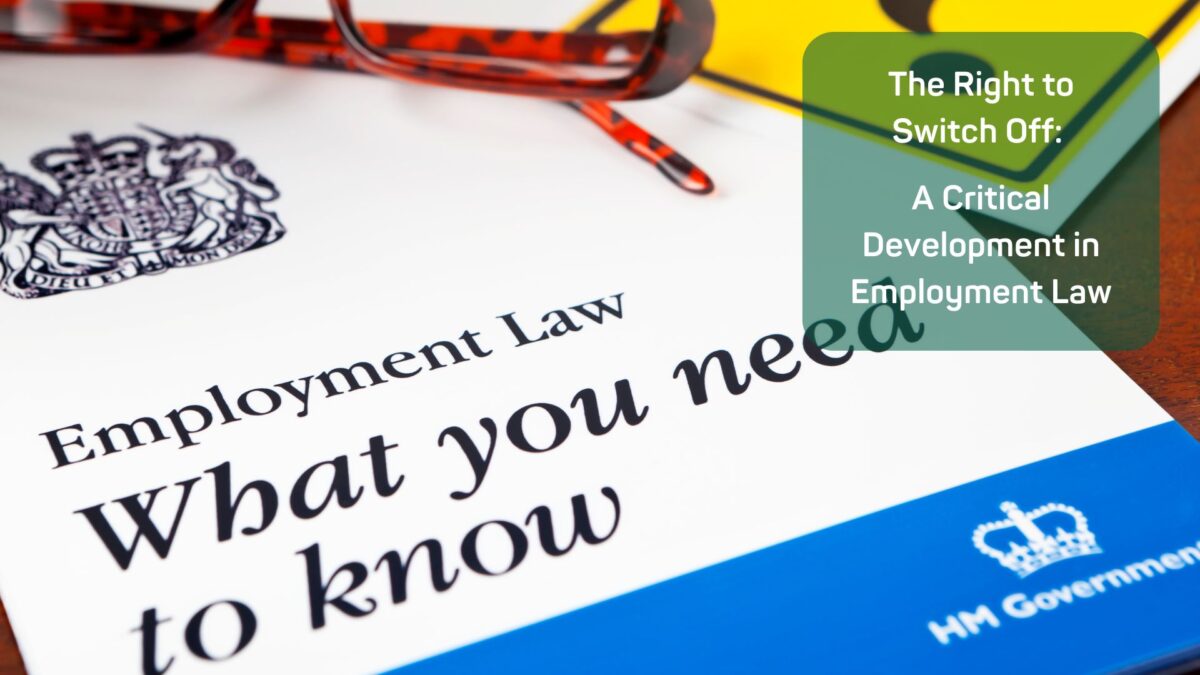The Right to Switch Off: A Critical Development in Employment Law
As the boundaries between work and personal life continue to blur, the concept of the “right to switch off” has emerged as a significant issue within UK employment law. This concept, which centres on employees’ ability to disconnect from work-related communications and tasks outside of contracted hours, is gaining momentum as a potential new labour right. With the rise of remote work and the expectation of constant availability, the right to switch off is not only a matter of work-life balance but also a critical legal issue that employers must navigate.
The Legal Landscape: The Right to Disconnect
The right to disconnect is already enshrined in law in several European countries, including France and Ireland, where it has been established to protect employees from the growing demands of modern work environments. In the UK, the introduction of similar legislation is being debated, with growing support from labour unions and workers’ rights advocates. The right to switch off would represent a significant shift in employment law, aiming to prevent the encroachment of work into personal time and to protect employees’ mental health and well-being.
Legal Implications for Employers
The implementation of a right to disconnect would have far-reaching implications for employers. From a legal standpoint, businesses would need to reassess their employment contracts, workplace policies, and communication practices to ensure compliance with new regulations. Key considerations include:
- Employment Contracts:
- Employers may need to revise employment contracts to clearly define working hours and specify expectations regarding out-of-hours communication. This could involve setting limits on when employees can be contacted or required to respond to work-related inquiries.
- Workplace Policies:
- Companies would need to develop and implement workplace policies that support the right to switch off. This could include guidelines on email usage, the timing of meetings, and the use of digital communication tools. Such policies must be communicated effectively to all employees to ensure understanding and compliance.
- Data Protection and Privacy:
- The right to disconnect also intersects with data protection laws, as employers must ensure that employees’ personal time and data are respected. This includes safeguarding employees’ privacy and preventing the overreach of work-related surveillance outside of working hours.
- Health and Safety Regulations:
- Employment law also ties into health and safety regulations, where the right to switch off can be seen as a protective measure against burnout and mental health issues. Employers have a duty of care to ensure that their employees are not subjected to excessive stress or unreasonable demands that could impact their well-being.
The Ethical and Practical Considerations
Beyond the legal implications, there are also ethical and practical considerations for employers. Ethically, the right to disconnect acknowledges the importance of employees’ personal time and mental health, challenging the culture of overwork that has become prevalent in many industries. Practically, employers must balance the need for business efficiency with respect for employees’ rights. This may involve rethinking management practices, such as the timing of task assignments and the expectation of after-hours availability.
Employers must also consider the potential impact on productivity. While the right to disconnect may limit the immediate responsiveness of employees, it could also lead to increased job satisfaction, reduced burnout, and ultimately, greater productivity and retention in the long term.
Future of Employment Law in the UK
As the debate around the right to switch off gains traction, it is clear that employment law in the UK is evolving to meet the challenges of the modern workplace. The potential introduction of this right would represent a significant development in the legal framework governing employment practices, emphasising the importance of work-life balance and the protection of employees’ well-being.
For employers, staying ahead of these changes is crucial. By proactively adapting to the evolving legal landscape, businesses can not only ensure compliance but also create a more supportive and sustainable work environment for their employees.
Conclusion
The right to switch off is poised to become a key issue in UK employment law, reflecting broader societal shifts towards prioritising mental health and work-life balance. Employers must prepare for potential changes by reviewing their employment practices and ensuring that they align with emerging legal standards.
If your business is concerned about the implications of the right to switch off or needs assistance with employment law compliance, our team of legal experts at GSC Solicitors is here to help. Contact us today to discuss how we can support your business in navigating these complex legal challenges.





